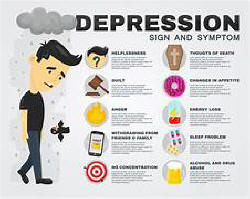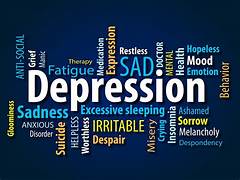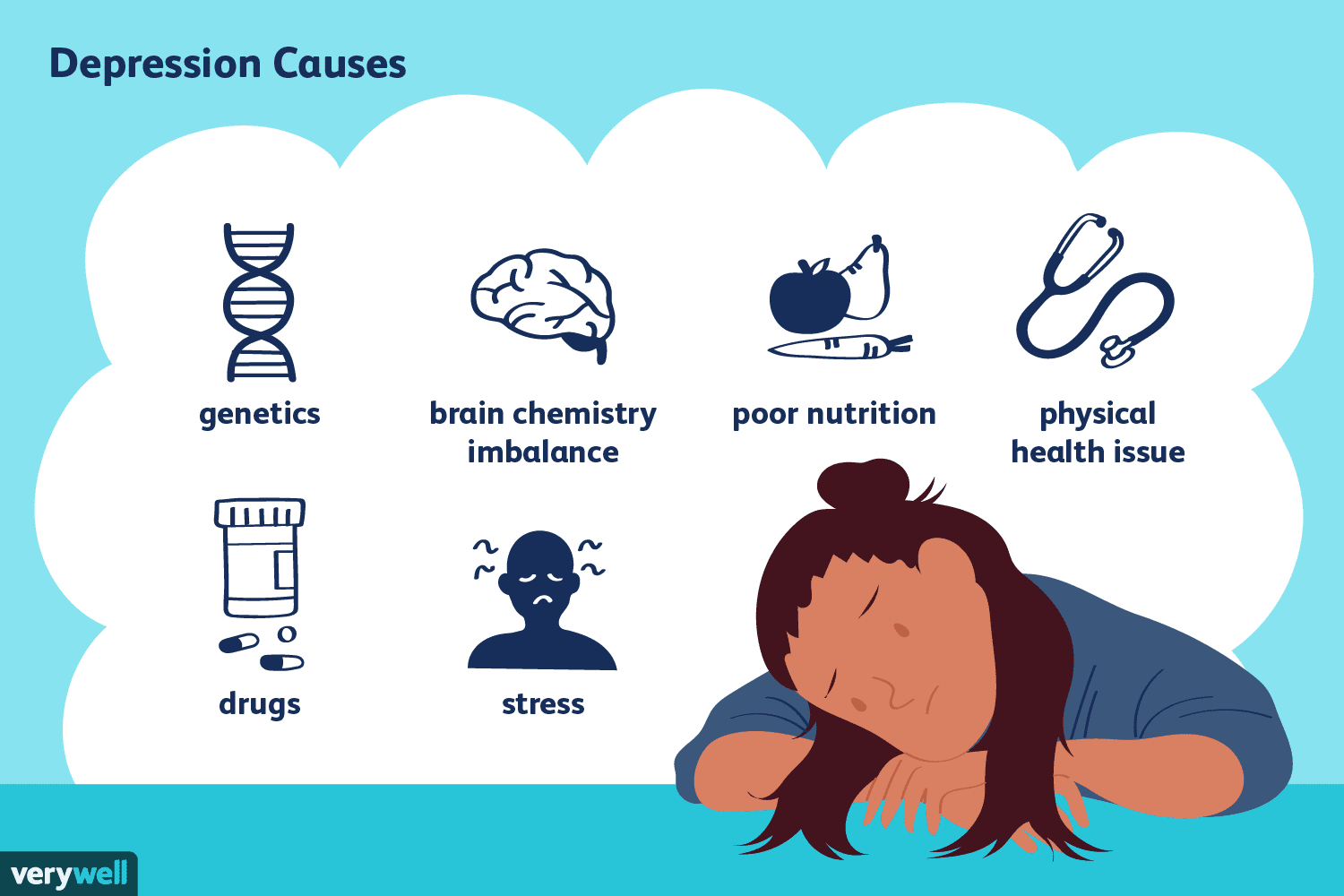Depression
You can't give up on yourself
Effects on Daily Life
 The
distinct obstacles that each subtype poses highlight the necessity
for tailored solutions. Mental health practitioners may provide
persons navigating these difficult situations more effective help
when they are aware of the subtle differences within the depression
spectrum. Every subtype has different subtleties and problems,
therefore customised treatment plans are required (Beck et al.,
1979). Depression has far-reaching effects that go beyond just
feeling uncomfortable. Depression frequently causes upheavals in a
person's life, which affects their relationships, employment, and
general well-being.
Common symptoms that impair one's capacity to carry out daily chores
include exhaustion, changes in appetite, sleep difficulties, and
trouble focusing (Mayo Clinic, 2021). Because depression is a
chronic condition, social disengagement can exacerbate feelings of
loneliness and the downward spiral (APA Practice Guidelines, 2010).
Problems with focus and decision-making can lead to a decrease in
work productivity. Daily battles with depression symptoms can result
in a lowered feeling of self-worth, which makes it difficult to
participate in once-enjoyable activities. Understanding these
effects is crucial to putting into practice comprehensive strategies
for helping people who are depressed. Neurotransmitter abnormalities
in the brain, including those involving serotonin, dopamine, and
norepinephrine, are linked to depression. These substances are
essential for mood regulation, and disturbances can lead to
depressive symptoms.
The
distinct obstacles that each subtype poses highlight the necessity
for tailored solutions. Mental health practitioners may provide
persons navigating these difficult situations more effective help
when they are aware of the subtle differences within the depression
spectrum. Every subtype has different subtleties and problems,
therefore customised treatment plans are required (Beck et al.,
1979). Depression has far-reaching effects that go beyond just
feeling uncomfortable. Depression frequently causes upheavals in a
person's life, which affects their relationships, employment, and
general well-being.
Common symptoms that impair one's capacity to carry out daily chores
include exhaustion, changes in appetite, sleep difficulties, and
trouble focusing (Mayo Clinic, 2021). Because depression is a
chronic condition, social disengagement can exacerbate feelings of
loneliness and the downward spiral (APA Practice Guidelines, 2010).
Problems with focus and decision-making can lead to a decrease in
work productivity. Daily battles with depression symptoms can result
in a lowered feeling of self-worth, which makes it difficult to
participate in once-enjoyable activities. Understanding these
effects is crucial to putting into practice comprehensive strategies
for helping people who are depressed. Neurotransmitter abnormalities
in the brain, including those involving serotonin, dopamine, and
norepinephrine, are linked to depression. These substances are
essential for mood regulation, and disturbances can lead to
depressive symptoms.
 Studies
indicate that long-term inflammation might have a role in brain
alterations and the onset or worsening of depression symptoms.
Recent studies point to a link between mental health and gut
microbiota. Changes in the gut microbiota have been seen in
depressed people, and the gut-brain axis may be involved in mood
regulation. Depression may arise as a result of environmental causes
such trauma, abuse, or important life events. These encounters might
affect susceptibility via interacting with genetic predispositions.
Depression has a significant effect on women's, children's, and
teens' mental health, with each group facing particular
difficulties. Depression in kids frequently shows itself as
behavioural, intellectual, and social behavioural problems. If
childhood depression is left untreated, it can impede normal
development and cause ongoing emotional problems. In the midst of
forming their identities and dealing with the demands of school,
teenagers are more vulnerable to depression. The emergence of social
media, peer pressure, and social dynamics all lead to heightened
susceptibility.
Studies
indicate that long-term inflammation might have a role in brain
alterations and the onset or worsening of depression symptoms.
Recent studies point to a link between mental health and gut
microbiota. Changes in the gut microbiota have been seen in
depressed people, and the gut-brain axis may be involved in mood
regulation. Depression may arise as a result of environmental causes
such trauma, abuse, or important life events. These encounters might
affect susceptibility via interacting with genetic predispositions.
Depression has a significant effect on women's, children's, and
teens' mental health, with each group facing particular
difficulties. Depression in kids frequently shows itself as
behavioural, intellectual, and social behavioural problems. If
childhood depression is left untreated, it can impede normal
development and cause ongoing emotional problems. In the midst of
forming their identities and dealing with the demands of school,
teenagers are more vulnerable to depression. The emergence of social
media, peer pressure, and social dynamics all lead to heightened
susceptibility.
 Beyond
just causing emotional anguish, the effects also affect
relationships, academic achievement, and general well-being.
Preventing long-term consequences requires early detection and
treatment of adolescent depression. Depression disproportionately
affects women at different periods of life. Hormonal variations have
a role in increasing vulnerability, especially during menopause,
pregnancy, and puberty. The danger might be increased by gender
norms, societal expectations, and the difficulties of juggling work
and family obligations. In addition, some forms of sadness, such
postpartum depression, are more common in women. It is essential to
recognise the subtle ways depression presents itself in different
groups in order to develop specialised therapies and support
networks that take into account the unique difficulties that women,
children, and teens encounter.
Beyond
just causing emotional anguish, the effects also affect
relationships, academic achievement, and general well-being.
Preventing long-term consequences requires early detection and
treatment of adolescent depression. Depression disproportionately
affects women at different periods of life. Hormonal variations have
a role in increasing vulnerability, especially during menopause,
pregnancy, and puberty. The danger might be increased by gender
norms, societal expectations, and the difficulties of juggling work
and family obligations. In addition, some forms of sadness, such
postpartum depression, are more common in women. It is essential to
recognise the subtle ways depression presents itself in different
groups in order to develop specialised therapies and support
networks that take into account the unique difficulties that women,
children, and teens encounter.
Home | Types | Effects | Treatments | References